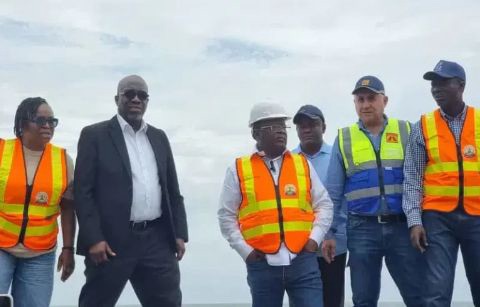The Federal Government has announced plans to open the completed portion of Section 1 of the Lagos Calabar Coastal Highway to motorists between December 12 and 17. Although the section has about two kilometres left to be fully completed, it remains on track for formal commissioning in April 2026.
Minister of Works Engr. David Umahi revealed this during an inspection tour on Sunday, noting that a total of 47.37 kilometres was assessed. The 700 km coastal highway stretches from Victoria Island in Lagos to Calabar in Cross River State.
Umahi praised the progress made so far, explaining that construction was intentionally slowed in some areas to allow proper subsoil settlement, an essential engineering step to ensure durability and long term integrity. He also commended Hitech for what he described as an “uncommon commitment” that goes beyond financial motivation.
On funding, Umahi disclosed that the foreign loan component of the project was oversubscribed by 100 million dollars, reflecting investor confidence in both the project’s economic prospects and the ministry’s transparent management.
Hitech Managing Director Danny Aboud confirmed that sand filling is advancing across swamp zones and that between 34 and 35 kilometres of the concrete reinforced pavement has already been completed.
Beyond Section 1, the inspection team also visited a 25 kilometre dual carriageway between Eleko near Dangote Cement in Ibeju Lekki and Ijebu Ode in Ogun State, as well as a major flyover at Chainage 47.474, designed to link Sections 1 and 2 of the highway. With 80 per cent of piling work completed, the interchange is expected to be ready in the first quarter of 2026, easing traffic to the Dangote Refinery and nearby port access roads.
Umahi further announced the launch of the President Tinubu Engineering Mentorship Programme, scheduled to begin in January. The initiative will recruit engineers, designers and technicians nationwide, providing hands on experience on major projects including the coastal highway and the Sokoto Badagry road. After training, participants will receive start up support to acquire essential equipment, an effort aimed at strengthening indigenous engineering capacity and reducing dependence on foreign expertise.



